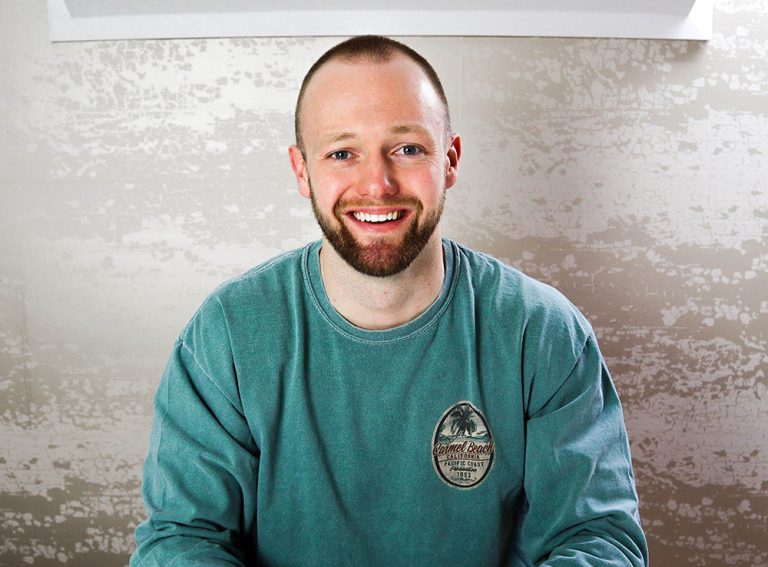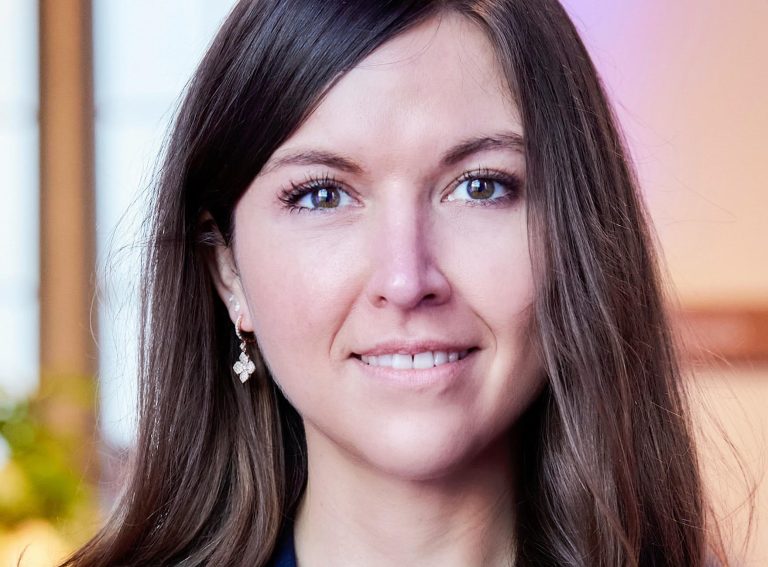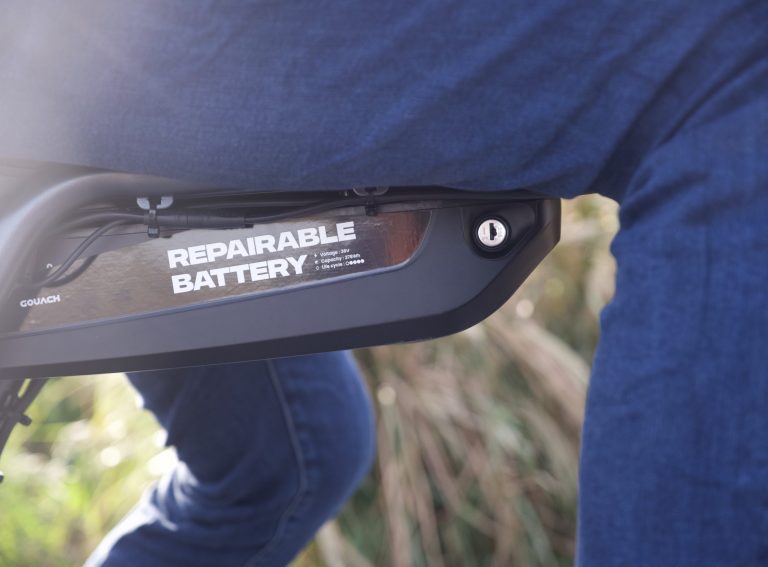Transport for London e-scooter lead Helen Sharp speaks to Zag about the process of selecting operators for the London trials and how TfL is working to raise standards and improve the service.

Zag: To begin with, what are your general impressions of the London shared e-scooter trials so far?
Helen Sharp: “We are now starting week six and have already been able to grow the trial area by adding three more boroughs, which came on-board last week. We have also been able to increase the number of e-scooters that are out on the road from 600 to 1,200 in total across the trial area. It is early days, obviously, but really the emphasis and focus are on seeing how it goes. We are working collaboratively with the boroughs involved and with other boroughs that are looking to join, while also bedding things in and getting into a rhythm with the operators. We have already made a few changes – it is a trial and things are not going to be perfect on day one – but the main objective is to is to learn as much as possible and collect as much data as we can. However, we also want to see where we can make improvements within the trial period, so we have been making some tweaks.”
Zag: What was the process of choosing the operators for the trial?
Helen Sharp: “Back in November 2020, TfL launched an open and competitive procurement process for three operators. We ended up selecting Dott, Lime and TIER, and that was based on a comprehensive criteria including their ability to demonstrate rigour against the high operating standards that we want to achieve for London. We also looked at their efforts and approach towards making sure that the trial can be as safe as possible for everyone in London.”
Zag: Was the fact that these three operators are working together in Paris part of the decision?
Helen Sharp: “No. The procurement processes are independently assessed and based on various requirements, so it is more about their individual ability to meet those standards. We are really pleased that we are already seeing collaboration across the three operators, and we have also been able to introduce a collaboration charter, which highlights the areas where we want the operators to work together.”
Zag: Did you look at other trials in the UK before they started in London?
Helen Sharp: “We spent a lot of time throughout the procurement process looking at the specification that we wanted operators to be able to deliver. That had a lot of factors that influence where we ended up, so obviously we were taking DFT minimum standards into account with an eye on prioritising safety. There are several elements within the specification where we went above and beyond the DFT guidance, and that includes some areas where we learned from the other trial areas. The main takeaway was probably learning from the dockless bike trials and listening to a lot of feedback that we were getting from various stakeholders, where the free-floating model was not particularly popular. We have obviously gone with having specific designated parking bays, so starting slightly later gave us the opportunity to look across the country and see what others are doing, which helped us.”
Zag: How does running a shared e-scooter scheme differ from other transport projects you have been involved in?
Helen Sharp: “I used to be the head of the Emirates Airline and head of business development within sponsored services, which involved Santander Cycles, river services and the cable car. This role in terms of leading the e-scooter trials takes both operational experiences as to how to run a mode of transport and how to work with different operators, while also acting almost like the regulator for different services. I think e-scooters are different in some ways because obviously the scheme is brand new and there is a lot of new technology that comes with it. The whole industry is driving those standards hard, but I think our involvement primarily was to continuously promote safety. That obviously fits with Vision Zero and eliminating deaths and serious injuries from road collisions and everything else that the other TfL modes do, but it also enabled us to have pan-London trial and a consistent approach. In London, we have a different set up with all the different boroughs and it is an individual borough’s decision as to whether they join the trial or not. Our role as TfL working closely with London Councils is to administer and coordinate the trial and promote a consistent approach across boroughs.”
Zag: You mentioned that tweaks have been made since the start of the trial. What exactly have you looked to change?
Helen Sharp: “Alongside the trial we are running a separate pilot with a micromobility data sharing platform. So that has a wider scope than just e-scooters, but obviously, we are using it for e-scooters as well. That is one of our main collection points for all the data so we are learning more about how the platform can assist with monitoring and evaluation of the trial. Otherwise, we are closely looking at geofencing, which is relatively new as a technology. Expectations are high for how that how it works, and we have already started to learn that depending on its original setup there are better ways of doing it than other ways. So, depending on how many zones you have and how they are applied within the back office for the different operators can affect a user’s on-street experience. We are changing some of those things and we are working closely with the boroughs who obviously know their own geographic area better than better than anyone. Another area of focus is parking. We are starting to get a sense that just looking at GPS is not enough. We need the operators to bring in additional measures and they are all working on different solutions for this, just to make sure that we have got as much compliant parking as possible.”
Zag: You mentioned that safety is a big priority. How have you gone about acting on that?
Helen Sharp: “There are quite a few areas. You have areas around the vehicle itself, where, as I said, we did a lot of work to make sure that the specification was robust. You will notice that the vehicles all are more sturdy and look different to the private e-scooter, while they have identification plates. So that was helpful in terms of enforcement to prevent risky or illegal behaviour. The operators are also doing work in terms of making sure that they can assist first-time riders. They are doing lots of on street events with training, promoting wearing helmets where possible, and can lower the speed for first-time riders as part of our beginner mode requirements. They also have introduced in-app questions in terms of safety, as well as more detailed modules that are available online. We have a lot of collaboration sessions and are running a periodic safety board, where all the operators come together to look at any incidents that have happened in that period and find what we can learn and improve. We are also looking at analysing incidents from private investigators to see whether the solutions and the designs that we have in place would have mitigated some of those instances as well.”
Zag: What is the challenge of private e-scooters potentially disrupting the trials?
Helen Sharp: “Obviously, we continue to look for the met police to carry on with their enforcement efforts, while also focusing on our communication with the public. TfL launched a comms campaign at the beginning o of the trial, to highlight the fact that the rental trial is the only legal way to ride an e-scooter in London on public roads. We continue to work very closely with the police and with the different representatives within the boroughs. In terms of colour and robustness, the rental e-scooters are easy to identify. They have identification plates so if there is any misuse of the rental scooters, the operators can act. They can warn riders, they can ban riders from their platform. So really the focus is on keeping the communication clear and the divide as clear as we can.”
Zag: Do you expect more boroughs to come on-board as the trials progress?
Helen Sharp: “Ultimately, it is a choice as to whether each borough participates and there are two different contractual terms. The ride-through basically means that the borough is not providing parking. In the instance of both Tower Hamlets and Southwark, TfL has provided some parking on our land, such as around Tube stations. We obviously continue to work very closely with the boroughs to try and increase the amount of parking that they are making available to the trial, but that is much more complicated than it might appear. We are also looking at the overall trial area. At the moment the priority is Westminster, which has committed to launching on 2 August, our next opportunity for boroughs to join. That will give us one contiguous trial area, and then our plan is to start to add more boroughs to build that trial area out.”
Zag: What is the benefit to having three operators in the city?
Helen Sharp: “The main benefit really is that they are all able to take a slightly different approach, which gives us the opportunity to learn more. There are aspects of their operations where we have given specific instructions, but how they choose to achieve that is up to the operator. This gives us a chance to test different approaches and ways of working. As a result, we are almost running three trials in a way.”
Zag: What are the overall aims of the trial, and do you have a ride number in mind?
Helen Sharp: “A successful trial for us is being able to collect enough information to inform future legislation with the DfT and future policy. We need to have enough information in order to figure out what the role of e-scooters could be in London going forward. We obviously have specific learning objectives underneath that, including whether e-scooters can be used to promote a sustainable recovery from COVID. We want to know if e-scooters can be a genuine alternative to cars, while also prioritizing safety at all times. Ensuring that we have enough boroughs on board to be able to test things and collect the information is important, and we need enough vehicles available, so it can become a genuine alternative mode of transport for people to use. We do not necessarily have targets or thresholds in terms of rides, but we want the trial running well enough to be able to inform the bigger picture properly.”





